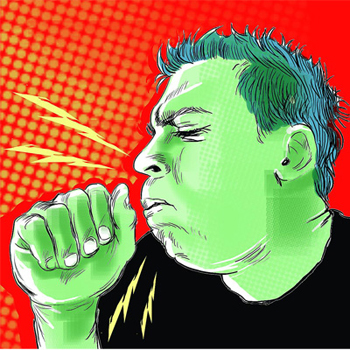 Mumbai, Jul 16: As per RTI data compiled by an NGO, Praja Foundation, in the last one year itself 7,650 people across Mumbai succumbed to various diseases ranging from malaria, tuberculosis to typhoid. From this, the highest number of people (7075) succumbed to TB as per cause of death certificates issued by the BMC’s public health department. Furthermore, through this data, it was found that 46,606 people died due to TB in the last six years itself.
Mumbai, Jul 16: As per RTI data compiled by an NGO, Praja Foundation, in the last one year itself 7,650 people across Mumbai succumbed to various diseases ranging from malaria, tuberculosis to typhoid. From this, the highest number of people (7075) succumbed to TB as per cause of death certificates issued by the BMC’s public health department. Furthermore, through this data, it was found that 46,606 people died due to TB in the last six years itself.
In Maharashtra, every month reports are received at the state office of the deputy chief registrar or birth and death at Pune where in the case of deaths that take place in various hospitals, the head of the institution is responsible for the submission of form no.4 to the local registrar. “Through this data that is being maintained since September 2004 under the Registration of Birth and Death (RBD) Act 1969, we have found major discrepancies in the reporting system of deaths caused by diseases like TB, malaria, dengue, among others,” said Milind Mhaske, project director at Praja Foundation.
The data was collected from civic-run hospitals/dispensaries, state-runs hospitals as well as privately-run ones across Mumbai. “According to data released by BMC in 2014, only 1393 people died due to TB and 30 due to malaria. While RTI data for the same period from cause of death certificates issued by the BMC themselves under RBD Act reveals that this year, 7127 already succumbed to TB and another 199 due to malaria. This is mainly because the BMC only compiles data from their own hospitals and not private or state-run hospitals,” he added.
Other than that, as per BMC records, only 30 patients succumbed to malaria while deaths due to the disease from death certificates stated that 199 citizens lost their lives because of it.
Diarrhoea was another cause of concern as a staggering 1,2 lakh residents were diagnosed with the water borne disease out of which 255 died between 2013-14. Other water borne diseases like cholera and typhoid resulted in seven and 10 deaths respectively. Dengue deaths have also risen from 52 to 74 in the last three years and in 2013, to 108.
The Other Side
When contacted, Dr Mangala Gomare, epidemiologist of the BMC said, “Basically the cause of death (COD) given in death certificates is based on the clinical impression of treating physician or general practitioner available at the time. At times, these doctors aren’t even qualified and the confirmation of the COD can be given only after a diagnostic test like ELISA for dengue. For malaria cases, the death review committee confirms whether the patient died due to the disease or not.”
“Other than that, many patients are shifted to Mumbai and aren’t residents here so their deaths aren’t included in our records,” she added.







Comments
Add new comment